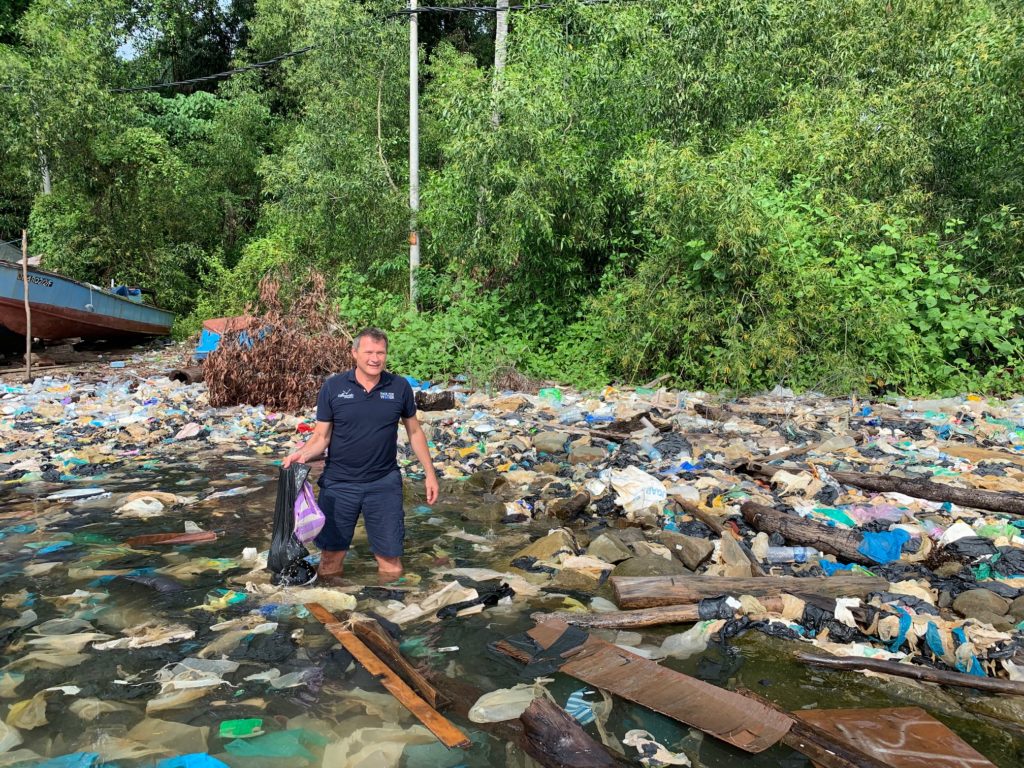“The Ocean is life, freedom, adventure, discovery, our future.” – Race For Water
Published on by Water Guardian Research in Association / NGOs
Marco Simeoni, President of the Race for Water Foundation: "In 2010, I created Race for Water to protect our oceans from plastics. Back then, I said that there was an emergency. And 10 years later, it's no longer an emergency, it is an unprecedented environmental catastrophe. And things are not changing.”
Acknowledgement and urgency to act
Whilst there is awareness amongst some of the key industrialists or governments, under pressure from NGOs, Foundations, and Associations, the implementation of solutions is TOO slow. Today, multinationals talk about considering alternatives to plastics with commitments on recycling by 2025 or 2030. It is important but not enough. Every minute, one truck full of garbage is being dumped into the sea. Between now and 2025, the volume of plastic produced will increase significantly. We are experiencing a terrible seepage of plastics into nature. But what are the multinationals doing today to stop it?
The pollution that already exists is a real environmental disaster. It urgently needs to be treated in order to prevent plastic waste from reaching the oceans. By treating the evil at its source, i.e. on land, we can limit this pollution that infects the entire water chain with invisible nano-plastics that are ingested by sea life (NB: 1.4 million animals die every year because of plastic waste in the oceans).
To date, no party benefiting from the production and use of plastics is bearing the enormous cost of this scourge. No one is involved in mass collection, processing and managing their footprint. Today, ten brands or companies account for 80% of the waste in the oceans. This pollution has a cost in terms of natural capital that is staggering. The University of Plymouth has conducted research which shows that plastic in the oceans represents a natural capital cost of USD 2500 billion per year. Nobody pays for that.
More than 12 million tons of plastics are dumped into the oceans every year. The global pandemic we are currently facing is exacerbating this pollution. Unfortunately, the plastics industry is engaged in mass lobbying to make people believe that single-use plastics are THE solution to COVID 19, which several studies invalidate. We are also seeing people carelessly disposing of surgical gloves and masks which are made from polypropylene, a petroleum derivative, and ending up straight into nature. These will take up to 450 years to decompose. The seabed in many places is already littered with them!
We must not give up in the face of this resurgene of bad habits.
Let’s not let ourselves be swayed. Let’s not forget that 50% of our oxygen is produced by the oceans and that half of humanity gets its food from it; so let’s stop altogether from polluting it.
Solutions do exist.
“I am confident in the future generations and in new technologies emerging to protect the environment. I also believe that we must review our capitalist model, and it is up to us to devise concepts of circular economies, taking into account environmental, social and economic impacts. A circular economy where nothing is thrown away and everything is recycled, inspired by what exists within natural ecosystems, and by what nature can teach us. The odyssey that we are currently leading around the world aboard our ambassador vessel has enabled us to meet more than 16,000 people so far. An eclectic audience ranging from heads of state to schoolchildren. Education is key, which is why we are targeting the younger generation. But we are also showing the decision-makers we meet at each port of call that innovation and new business models can offer sustainable economic, ecological and social benefits. By giving value to plastic waste we will be able to enter a virtuous cycle and achieve a positive outcome.”
Marco Simeoni

Source: Race for Water
Taxonomy
- Polymers & Plastics
- Public Outreach & Awareness
- Beat Plastic Pollution
1 Comment
-
What a life are we Building on earth?